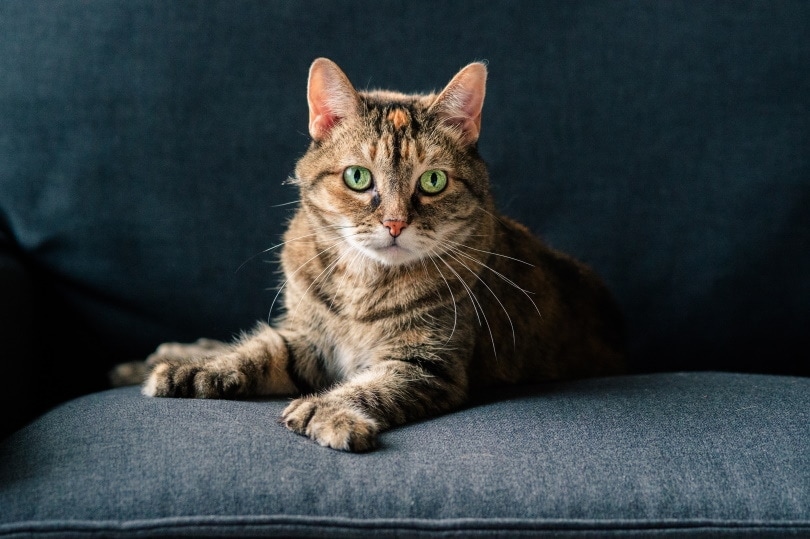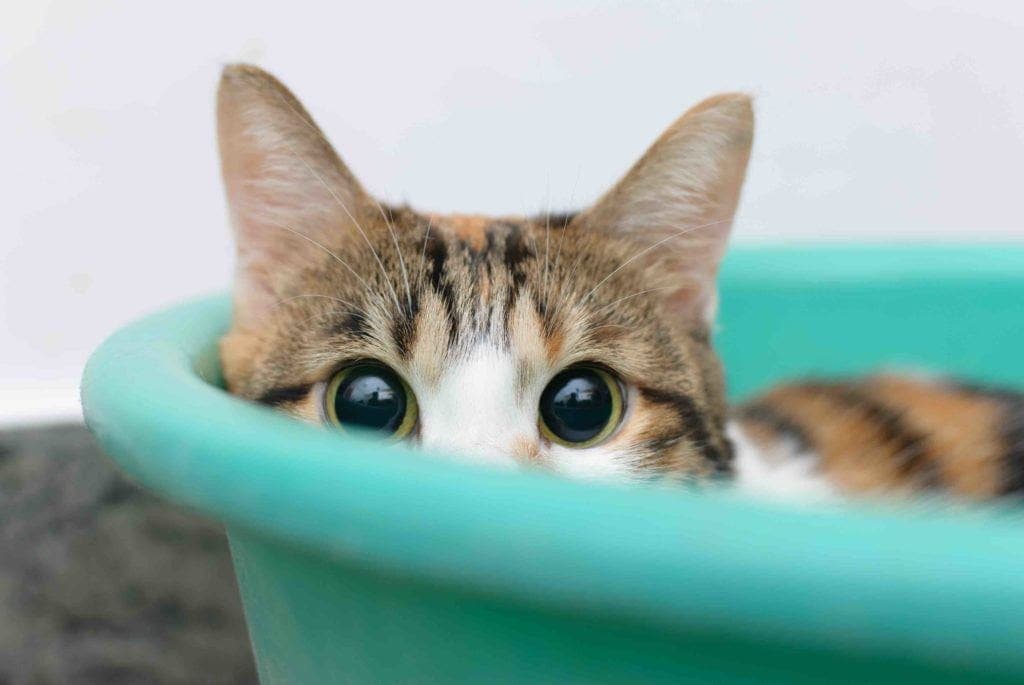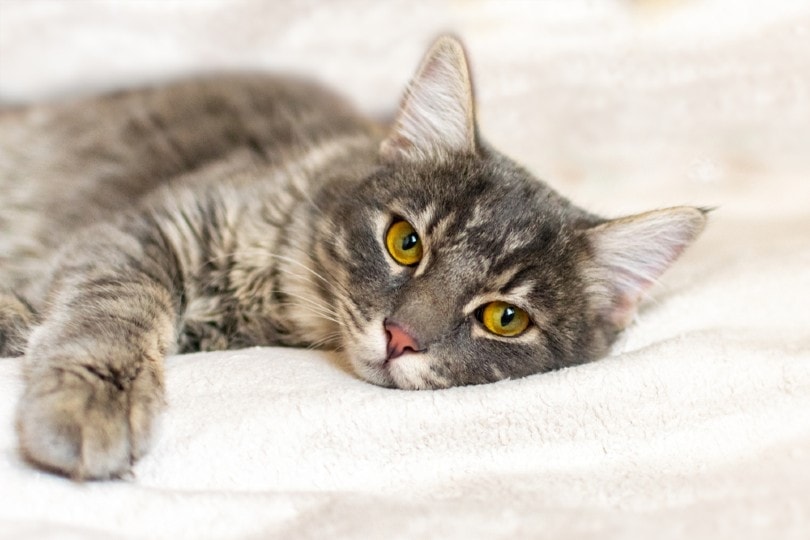Why Do Cats Meow All the Time? 8 Vet-Reviewed Reasons
By Jordyn Alger
Updated on
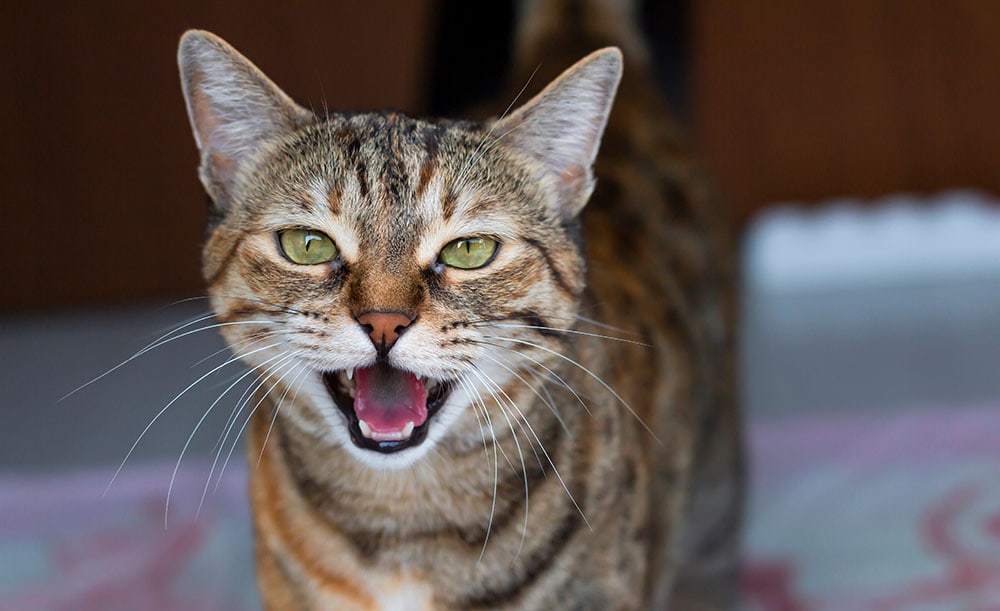
Click to Skip Ahead
There are several reasons why cats meow, and it is difficult to categorize them all into one box. But for the most part, your cat meows because they are communicating with you. Meowing is particularly interesting, as it is specifically used to communicate with humans. Kittens will meow at their mothers, but as they grow older, the meowing tapers off. The only time an adult will meow is if they are trying to communicate something to you.
But what are they trying to communicate? That’s the real question. There are a few common reasons why your cat may frequently meow, but there are also some medical concerns that may cause excessive vocalization. If you want to learn these reasons and perhaps limit your cat’s constant meowing, this article has the information you need.
The 5 Non-Medical Reasons Why Cats Meow
There are a few typical reasons that your cat will meow. Likely, your cat does at least one of the following, if not all.
1. Greeting
Meowing is a common way that cats greet their owners. If you have just returned home after a long day, your cat may run up to you and meow repeatedly. This is just their way of saying “hello.”
2. Wanting Attention
Cats are not as aloof and indifferent to their owners as they may pretend to be. If your cat feels neglected, they may meow at you to try and gain your attention and affection. If your cat has been left alone for an extended period, they will likely want pets, playtime, or even a few friendly words.
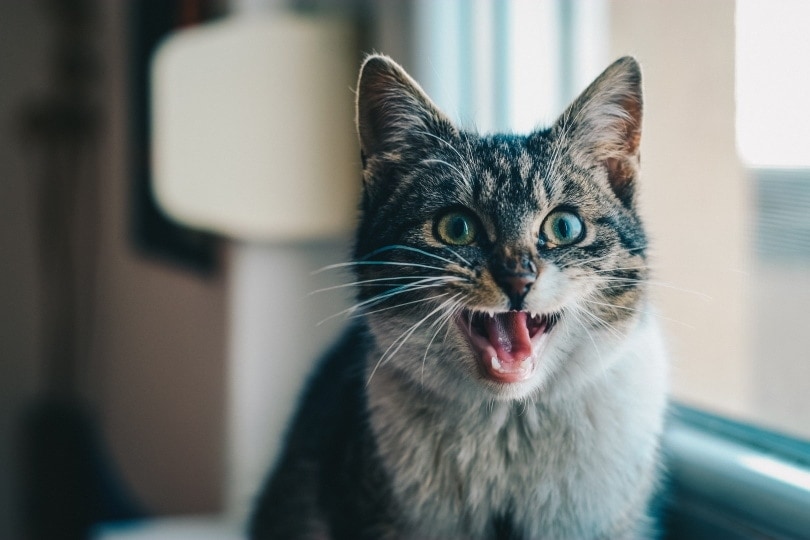
3. Hunger
Your cat’s appetite may compel them to meow. If they are hungry or think it is time for you to feed them, they may grow vocal as a way to demand a meal.
4. Go Outside or Inside
If your cat is allowed outdoors, they may be meowing to tell you that they want to either go outside or come inside.
5. Finding a Mate
If your cat is intact, they may vocalize to look for a mate. This sound is less of a meow and more of a yowl, but we included it on this list for information’s sake. If you want to limit the yowling, you must have your cat spayed or neutered.
The 3 Medical Issues That May Cause Excessive Meowing
If your cat’s vocalizations have grown more excessive or have started suddenly, it is possible that a medical condition is to blame. Any overly vocal cat should be taken to the vet to rule out a health complication. To learn more about potential medical causes, examine the list below.
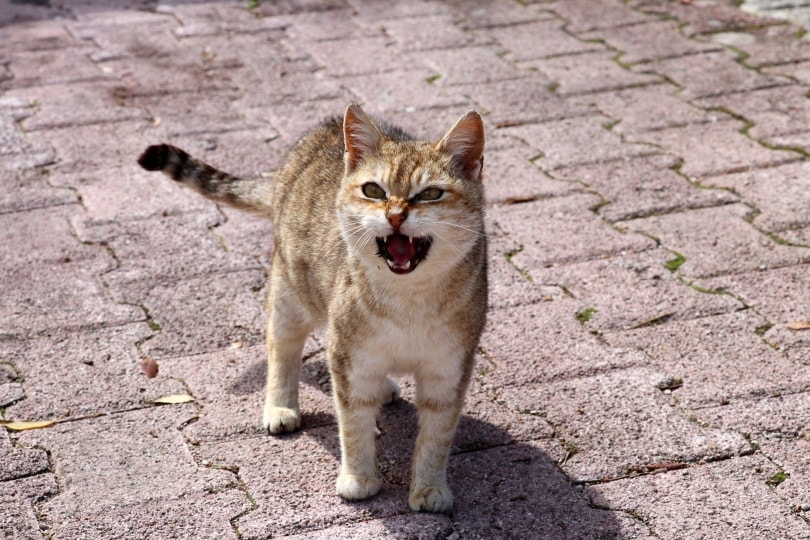
1. Aging
As your cat grows into an elder, they may experience cognitive decline. Feline dementia most often impacts cats that are a decade or older.
Some signs of cognitive impairment include disorientation, disturbed sleeping cycles, loss of previously known training (such as litter box training), lack of playing, and changes in activity levels. Another common sign is increased vocalization.
If your cat is a senior, look for any of these signs to determine if aging could cause constant meowing. However, arthritis and joint pain, as well as urinary and kidney issues, are just some of the reasons cats may stop using their litter box or behave as if they have forgotten how to do it properly. Speak to your vet who can rule out underlying diseases that may resemble cognitive decline.
2. Stress
Stress can be indicative of an underlying health concern. Stressed cats may vocalize more often and display other signs, such as urination and defecation issues, excessive grooming, poor appetite, isolation, and aggression.
If your cat exhibits signs of stress, take them to the vet to rule out a medical concern. If there is no medical issue causing the stress, try to figure out what the stressor in your cat’s environment is, and then eliminate or minimize it.
3. Illnesses and Pain
Some severe illnesses may cause your cat to meow constantly or more often than usual. Hyperthyroidism, high blood pressure and kidney disease are just a few potential causes, although the possibilities are not limited to those conditions. If you are concerned for your cat’s health, reach out to your vet so they can properly diagnose your cat and help you to devise an effective treatment plan.
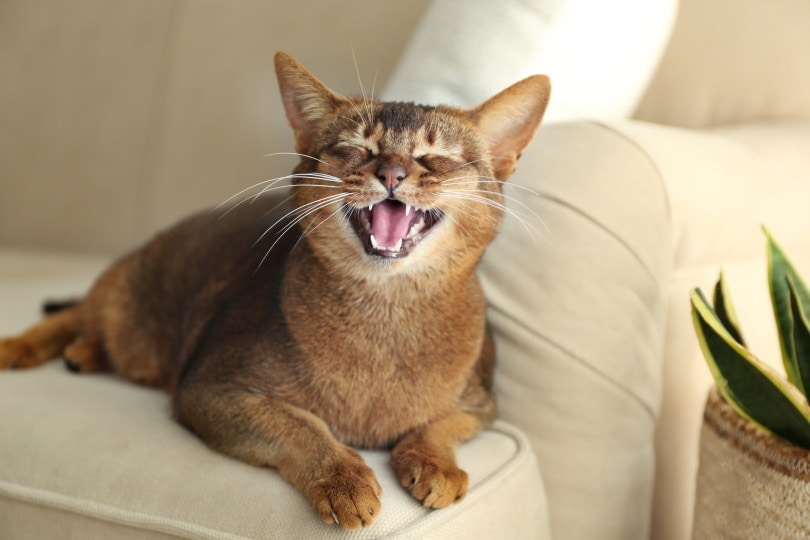
How to Manage Excessive Meowing
Assuming that a medical issue does not cause your cat’s meowing, excessive meowing may be a behavior you want to limit. To manage this behavior, you must construct a plan that suits your cat, your needs, and the problem you are trying to solve.
For instance, if your cat meows excessively to get your attention, you will want to avoid reinforcing this behavior. That means that you should not indulge them when they are constantly vocalizing. Instead, wait until they are settled and quiet and reward them for their excellent behavior.
It will take time to reinforce new behaviors in your cat, so brace yourself to be patient. Likewise, be understanding with your cat and know that they are not meowing to try and irritate you but to try and communicate with you the only way they know how. Once they learn that they can have their needs met without excessive vocalization, they should calm down.
What Not to Do
When directing your cat’s behavior towards something more favorable, it is vital to avoid inevitable missteps. First, you should never assume that your cat is meowing just to be demanding. If they are frequently meowing, verify that they are not hurt, have access to food and water, and can reach their litter box. Take them to your vet so any underlying conditions can be ruled out. Determine that all of their needs are met to ensure that they are not trying to bring your attention to a valid concern.
If they are meowing to be demanding, do not punish them. Punishments will not teach your cat the behaviors you wish to instill. Instead, it will lead them to be fearful of you.
Conclusion
Meowing is your cat’s only way to communicate with you. Although meowing may seem silly or even annoying to some people, remember that your cat has no other way to tell you how they feel or what they need. Pay attention to any signs of illness; if there are none, try to determine the root of your cat’s meowing. But keep in mind, sometimes signs of illness can be very subtle, and it’s always best to get your cat to the vet so they can check them over and rule out any underlying condition. The sooner you can determine what your cat needs.
See also:
- Why Does Cat Keeps Meowing and Rubbing Against Everything? Vet-Reviewed Feline Behavior
- Why Do Cats Meow at Night? 8 Reasons & How to Stop It
Featured Image Credit: Kaan Yetkin Toprak, Shutterstock



